Why We Started Full-time RVing
It was a series of events that led to our decision to travel and live full-time in an RV. We've always enjoyed road trips and extended travel. We spent a few weeks in New England. We spent a month in Alaska. We traveled for a few weeks across the south. And every time we would come back home, we were itching to get back out on the road. The only thing we didn't enjoy about road trips was the constant hotel shuffle. We would generally only stay in a place for 1-2 days so we were always carrying luggage and stuff that comes along with 3 little kids in and out of the hotel and repacking the car almost every day.
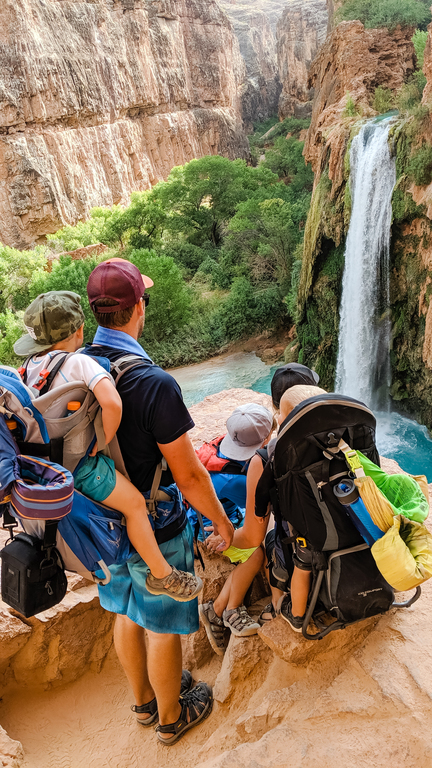
That was exhausting and you just don't know what condition each hotel room would be. That's about the time we started noticing more RVs passing by on the highway and we started to ask ourselves, "why don't we just pull our home behind us instead of moving in and out of hotels all the time?" One thing led to another and within a year we sold most of our belongings, including our home, and we bought a 5th wheel trailer.
Read more: This Family Of 5 Sold Everything A Year Ago And Have Been Fulltime RV-ing Around The USA Ever Since
The Benefits Of RV Travel Over Road Tripping In A Car & Staying in Hotels
It's really nice to have your home with you most of the time. We don't have to pack clothes. Food is in the kitchen. And we have our comfortable beds every night. Costs can vary depending on where you stay, how long you stay, and what time of year you travel in an RV. We spent close to $150/night in the Florida Keys during peak season in the summer.
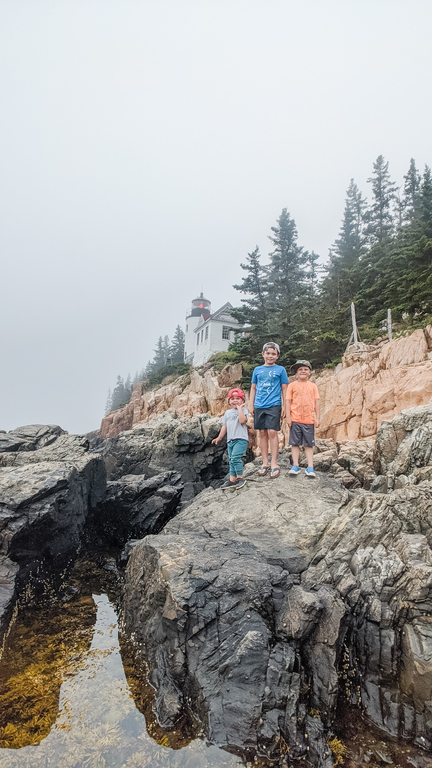
But most nights we average around $30 per stay. If you stay longer (week, month, or longer) you can often negotiate a deal (for example, stay 6 nights and get the 7th free). If you are willing to travel to popular destinations during the off-season, you'll often pay much less than the peak season rate. And we've stayed many nights for free in parking lots, rest stops, or "boondocking" out on BLM forest land. Sometimes we splurge and get a nice RV park so we have "full hookups" (water, sewer, electricity) which is often necessary to replenish our water on board and to do laundry in our washer/dryer in the RV.
Read more: These Two Outdoor Lovers Traded In Their Sticks-And-Bricks House For A New Home On Wheels
Our RV
We purchased a new Cedar Creek 37mbh (42ft mid bunk 5th wheel) from a dealer near our hometown in Utah. Much like buying a Ford or Toyota, you can't typically buy directly from the manufacturer. You either have to purchase through an RV dealer or you can buy from individual sellers. RVTrader.com is one of the largest online websites for finding new and used RVs for sale.
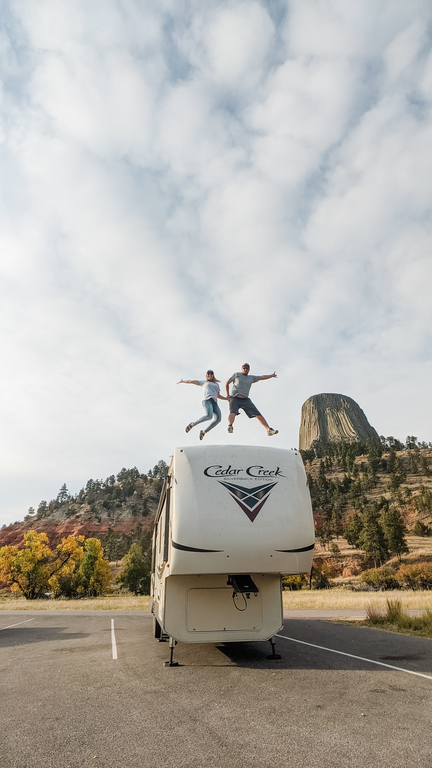
After waiting for a few months we showed up at the dealer and asked, "is that big RV what we ordered?" We had never seen our floor plan or model in person and it ended up being a lot longer and taller than we expected. But we've grown to love our home on wheels.
New RVs vary in cost much like a normal vehicle. You have $1million+ motorhomes that you see in celebrity magazines. You have small popup trailers that can sell used for $2,500. But if you want to live full-time in an RV, you'll want to invest in something higher quality. Most quality trailers or 5th wheels sell for around $30-60k brand new. Some RVs are sold with "all-season packages" which is just fancy marketing for the insulation in the walls, floor, and ceiling. And then you need to pay attention to the construction quality of the walls and cabinets. Every time you hook up a trailer and pull it down the road, it's going to bounce around and sway and flex. A good quality trailer can withstand many road travels. A poorer quality trailer might spend more time in the repair shop than you'd want.
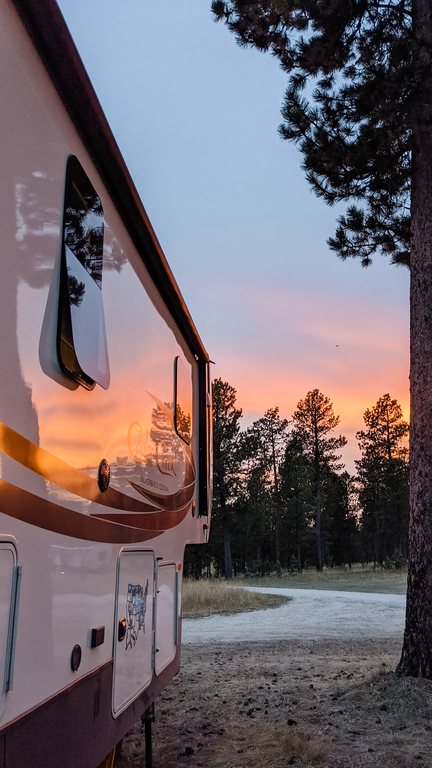
We bought new but in hindsight, we probably would have either rented a couple of models first or purchased a less expensive trailer to give it a trial run first. We love our RV but there are things we've learned after living on the road a couple of years that we would change in our next setup.
Read more: After Quitting Her Career Of 15 Years, Kelly Moved Into Her RV And Has Been Traveling Around The USA Ever Since!
Where We’ve Traveled To So Far
One of our goals, when we set out full-time on the road, was to visit all 50 states. (technically just 49 with the RV then we would move to Hawaii to celebrate). We've nearly accomplished that goal after exploring 47 states in our RV. We still want to spend the summer in Alaska and move to Hawaii for a while. After that, we want to RV across Canada and maybe explore Mexico a bit. We have friends who have traveled in RVs (often called "caravans" in other countries) in Australia, New Zealand, and all over Europe. Whatever we do, we just want to make sure family comes first and we're enjoying our time together.
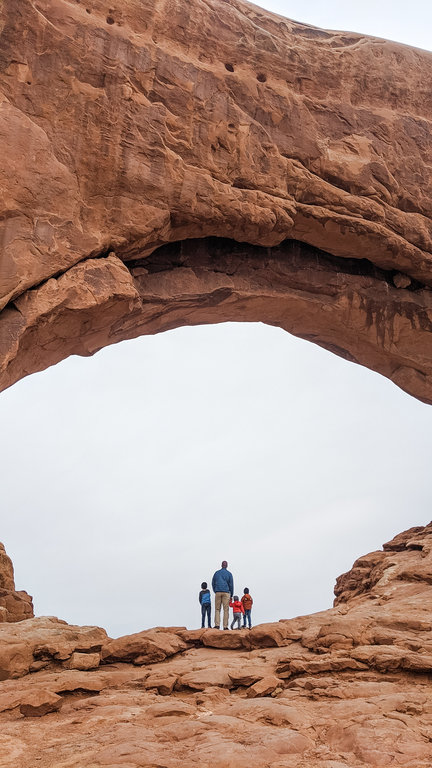
We typically move every 2-3 days. That's very quick for the average RV family. Most of our full-time RV friends stick around in the same spot for 1-2 weeks or longer. But we've always been a go-go-go type of family so we don't mind the quick pace.
Read more: The Wickes Family Sold 99% Of Their Belongings And Moved Into Their RV Seeking Adventures In All 50 States!
Typical Costs Associated With Living In An RV
Again, depending on the quality of the trailer you own, you will come across various repairs. If you're living full-time in an RV, it's inevitable that things will happen. An RV is similar to a standard home. There are 4 walls, a ceiling, and a floor. Plumbing, air conditioning, heating, electricity, all the stuff you might end up fixing once in a while in a home. But then you put that home on wheels and drag it down the road. We've lucked out with the quality of our trailer and only had a few minor hiccups. Because of the rate at which we travel, we've purchased new tires, changed brakes, and greased the bearings a lot more often than your typical RV owner might do.
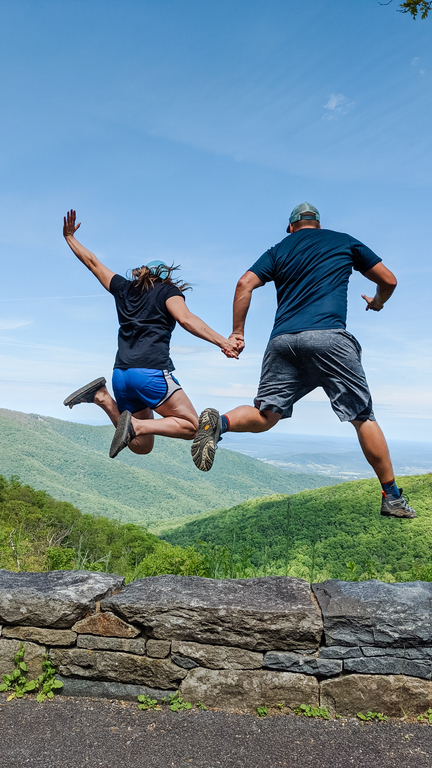
There are several things you can do to mitigate costs when traveling in an RV. The most obvious way is to stay put a little longer. If you're not moving down the road, you'll save on repairs and you won't need to fill up at the gas station as often. We've also had to set budgets for restaurants and entertainment. It's tempting to want to try all the new things in every town we stop at, but we still work full-time, homeschool and we're not secret millionaires. So it takes a lot of self-control to relax and not spend money in new places.
Read more: @Baconsontheroad Detail What It’s Like Being A Full-Time RV Family Traveling Around The United States
The Biggest Challenges To RV-Life
The constant unknown. Will you get from point A to point B in the time estimated by your GPS? Will you come across low clearance bridges or tunnels that increase travel time and add stress to "moving" days? Will your RV be in one piece when you open the door after arriving at your destination after a bumpy ride? Can you get into that tight parking spot or narrow gas station lane?
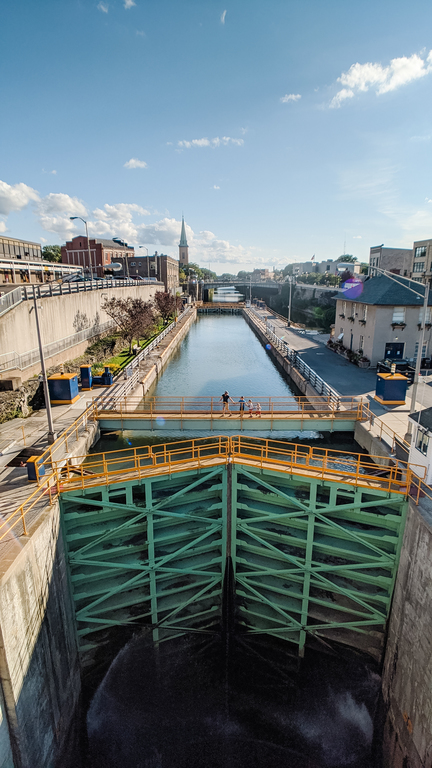
Unless you've spent a good amount of time in an RV prior to traveling in one full-time, the learning curve will be pretty steep at first. We've spent countless hours on YouTube, forums, blogs, and just talking to neighbors when we pull into an RV park. You just have to learn to relax and "go with the flow". Sometimes it's important to remind yourself why you started traveling in the first place, especially when you're stopped on a freeway exit with a flat tire and hours away from the closest city.
Read more: They Sold Everything 4 Years Ago To Live In Their RV Full-Time: Justin & Stacy Share What RV-Living Is Really Like
How We’ve Dealt With The Pandemic On The Road
Depending on the RV you use, you're likely "self-contained" which means you don't need outside facilities. Your shower, kitchen, bed, and everything you need are in your RV. Some campgrounds might have "full hookups" (water, electricity, and sewer) where other campgrounds only offer "partial hookups" (like maybe just electricity). So if you're staying for a while in a campground and you want to continue to shower and wash dishes without full water hookups, you might want to conserve that water by using the campground facilities.
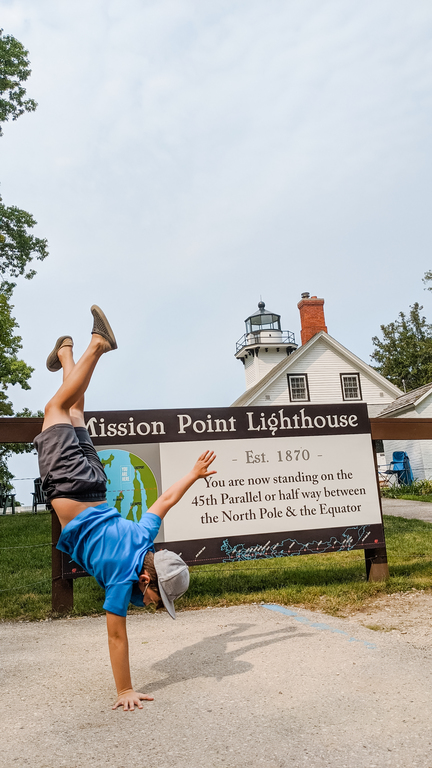
This past year we've found that more often than not, most campground facilities are either closed or limited to some capacity. Restrooms are often closed. Swimming pools limit the number of people that can enter every hour. Laundry rooms are closed or only allow one person to enter at a time. It really just depends on the state and local laws as well as the campground staff's ability to clean.
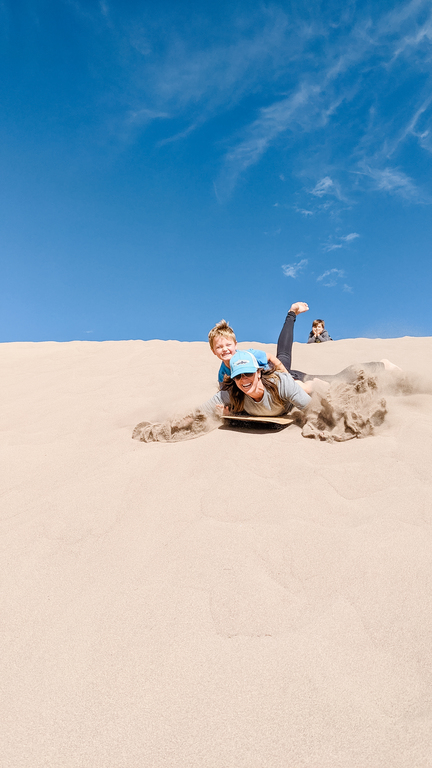
We're lucky that we have a large freshwater tank and we've learned how to take quick showers. So even if we're staying in a campground, parking lot, or forest land without restrooms, we can stretch our usable water to a week or so before we need to seek out someplace to dump our old water and sewer and fill up our freshwater.
Our Advice To First Time RVers
Don't be afraid to read a lot of blogs, watch YouTube and ask around. The RV community, especially the full-time RV community, is extremely helpful and encouraging. There are many Facebook groups and membership programs for full-time travelers. You can meet up with other RVers or just ask questions and learn from the community.
Other RV travel stories you might enjoy!
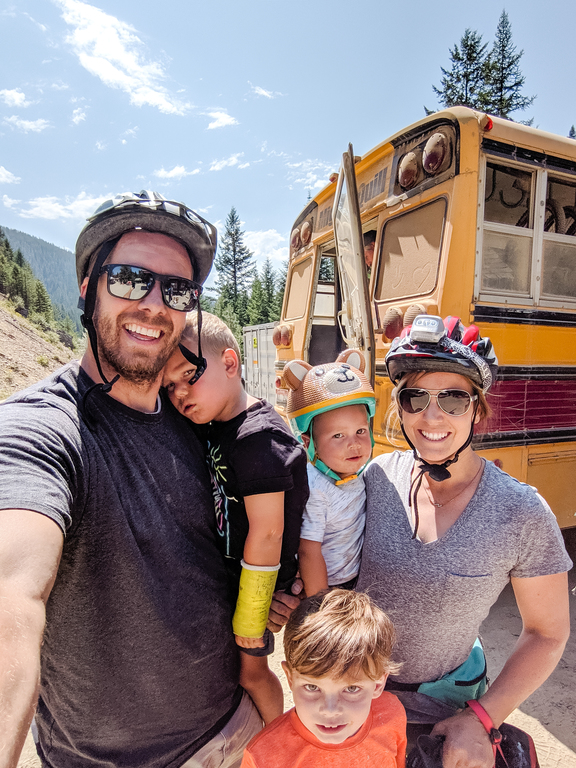









Comments
Thanks for the love! We really have had a blast exploring the country and making memories along the way.